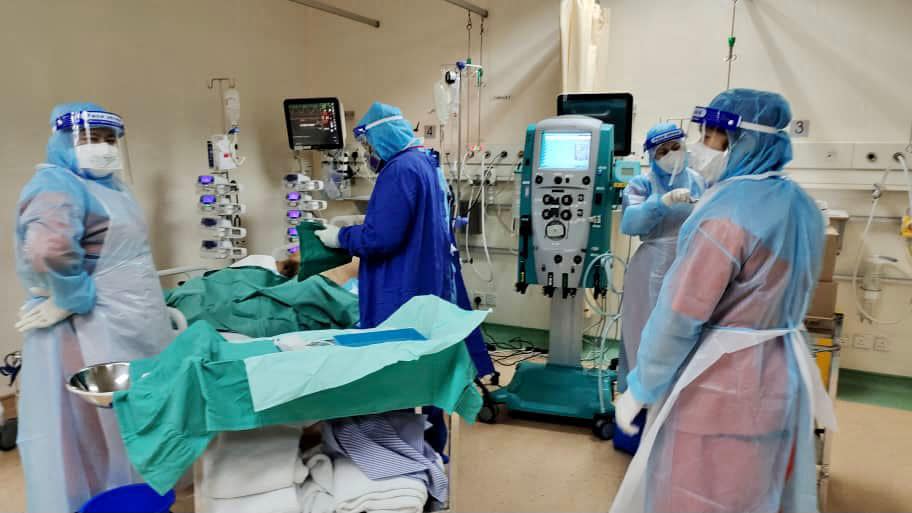KUALA LUMPUR, May 11 — A whopping 80 per cent of recent Covid-19 cases in Malaysia are unlinked, said the Ministry of Health (MOH) today, amid a new surge of the virus.
Malaysia recorded an average 3,621 daily Covid-19 cases in the 18th epidemiological week from May 2 to 8. More than 4,000 new infections were recorded daily on May 7 and May 8.
“Eighty per cent of the recently reported Covid-19 cases did not belong to any clusters. They are sporadic cases, which means the cases are in the community,” Health director-general Dr Noor Hisham Abdullah said during an in-person joint press conference with Senior Defence Minister Ismail Sabri Yaakob in Putrajaya today.
Sporadic cases illustrate just a small proportion of a much larger outbreak in a locality with hidden Covid-19 infections, due to the lack of contact tracing to match these infectious disease cases to others.
Recently, the Centers for Disease Control and Prevention (CDC) in the United States finally acknowledged that the coronavirus is airborne. This means the virus can be spread when a person breathes in virus particles.
“Covid-19 spreads when an infected person breathes out droplets and very small particles that contain the virus. These droplets and particles can be breathed in by other people or land on their eyes, noses, or mouth,” said the CDC in guidance updated yesterday.
Dr Noor Hisham also mentioned today that 92 per cent of the reported Covid-19 cases involved Malaysians. He also pointed out the increase in cases which involved new Covid-19 variants.
He also noted that many countries saw a hike in Covid-19 cases in the middle of March and April, which might have been caused by new variants.
These variants have led to rapid transmission of the coronavirus and impacted younger people in Malaysia, while steroids have not proven effective for treatment, he added.
States like Kelantan, Perak, Kedah, Selangor, and Negeri Sembilan, have reported cases caused by the South African Covid-19 variant. The Covid-19 variant that first emerged in South Africa, the B.1.351 variant, is believed to be more infectious.
“We don’t know how far the variants have affected other states,” said the Health DG.
According to MOH, so far, a total of 56 cases with Covid-19 variants have been identified in the country, including 48 cases with the South African variant and eight cases with the United Kingdom variant.
“We have identified one Covid-19 case with the Indian variant. A total of 14 cases involving South African variants have been registered today, bringing the total cases for that variant to 62,” said Dr Noor Hisham.
“The cases are increasing continuously and that is the reason why we implemented the third MCO. Hospital capacity to treat Covid-19 patients is decreasing. We are worried if the cases increase again, we might not have beds for ICU (intensive care unit) patients and insufficient ICU units to treat patients who need ventilator support,” Dr Noor Hisham added.
“Our hospital capacity is full, especially the ICUs in Klang Valley.”
Today, Penang Chief Minister Chow Kon Yeow said that ICUs to treat severely ill Covid-19 patients have reached full capacity in the state’s public hospitals.
Chow also noted that more than 70 per cent of Covid-19 beds have been filled up, as coronavirus cases increased in Penang.
It is to be noted that about 55 per cent of 7,797 Covid-19 cases in Penang reported from March 19 to May 9 this year were sporadic.
Dr Noor Hisham highlighted that the second Movement Control Order (MCO), which was implemented earlier this year, reduced the number of Covid-19 cases through preventive measures.
“During the second MCO, we allowed economic sectors to operate, but we stopped the social, education and sports sector. We managed to successfully reduce the cases and flatten the Covid-19 curve (epidemiological curve). By mid of March this year, the cases were reduced,” he said.
“We allowed the social, education and sports sectors to resume in March. Maybe it was too early to allow those sectors to function.
“Through the second MCO, we carried out preventive measures. If that MCO was not in place, the Covid-19 cases would have increased from 5,000 to 10,000. It was estimated by the Institute for Health Metrics and Evaluation in the United States that we would report 20,000 Covid-19 cases in the first week of March.
“But that did not happen because we managed to prevent it. But we did not successfully bring down the cases to two or three digits. That was because we did not close the social, education and sports sectors.”
Prime Minister Muhyiddin Yassin yesterday announced the third nationwide MCO, effective from tomorrow until June 7, barring interdistrict and interstate travel, dine-ins, as well as home visits during Hari Raya Aidilfitri.
Malaysia has recorded a total of 448,457 Covid-19 cases as of today, including 3,973 new infections in the past 24 hours.
The number of Covid-19 patients requiring intensive care has increased to 453, including 224 on ventilator support. Twenty-two new Covid-19 deaths were also reported today, leading to an overall death toll of 1,722 fatalities.
Selangor reported the highest number of new Covid-19 cases in the country today at 1,328 cases, followed by Sarawak (512 cases), and Johor (384 cases).








